Continence
Continence means having the ability to voluntarily control emptying of the bladder and bowel in a socially acceptable place. It can also be described as successfully going to the toilet.
Incontinence is when a person is not able to control their bladder or bowel. It can also be described as leaks, leaking, or having ‘accidents’.
Question
Test your knowledge of continence and incontinence with this short quiz.
1. How often do people empty their bladder each day?
On average 6-8 times a day.
2. How often do people empty their bowel each day?
Most people empty their bowel at a similar time of day, and a regular frequency. This could be between 3 times a day to 3 times a week.
3. Many people are likely to experience incontinence at some point in their lives.
True: Incontinence is common. An estimated 20% of women and 10% of men experience urinary incontinence.
4. Incontinence is only a problem for children or old people.
False: Women, men, girls and boys can all experience incontinence at any age.
5. Bladder incontinence (leaking urine) is more common than bowel incontinence (leaking faeces).
True: Bladder incontinence is more common than bowel incontinence.
6. Which of the following might cause incontinence?
If you checked all of the boxes above you are correct.
There are lots of different reasons why people may experience incontinence. The list above shows just some of the reasons.
Successfully going to the toilet (continence) involves three main steps:
- Step one: Recognise (from body signals) when it is time to go to the toilet
- Step two: Hold on until the right time to release
- Step three: Empty the bladder or bowel completely when in the right place and ready.
Question
1. What ‘body signals’ tell you it is time to go to the toilet?
- A feeling of pressure on the bladder or bowels, which gets stronger if there is a delay in getting to the toilet
- A feeling of pain in the stomach can be a sign of needing to empty bowels.
2. What might delay someone getting to the toilet on time?
- Not recognising, or ignoring body signals
- Being focused on something else, and leaving it ‘too late’ to get to the toilet
- Physical difficulty moving to the toilet
- Barriers blocking the way to the toilet.
3. Is it a problem if someone is unable to completely empty their bladder every time they go to the toilet?
Yes, incomplete emptying is a problem for the bladder. It encourages bacteria (germs) to grow, causing a urine infection and can also increase the risk of bladder stones (small lumps of minerals). Bladder stones can block the flow of urine which is dangerous.
4. Is it a problem if someone does not empty their bowel regularly?
Yes, not emptying the bowel regularly or straining to pass hard, dry faeces is called constipation. It is a problem because it is uncomfortable and can cause faecal incontinence. Constipation can also irritate the bladder; and cause urinary incontinence.
Incontinence may be related to one, or each of the steps described above.
Question
Which steps are each of the following people having difficulty with?
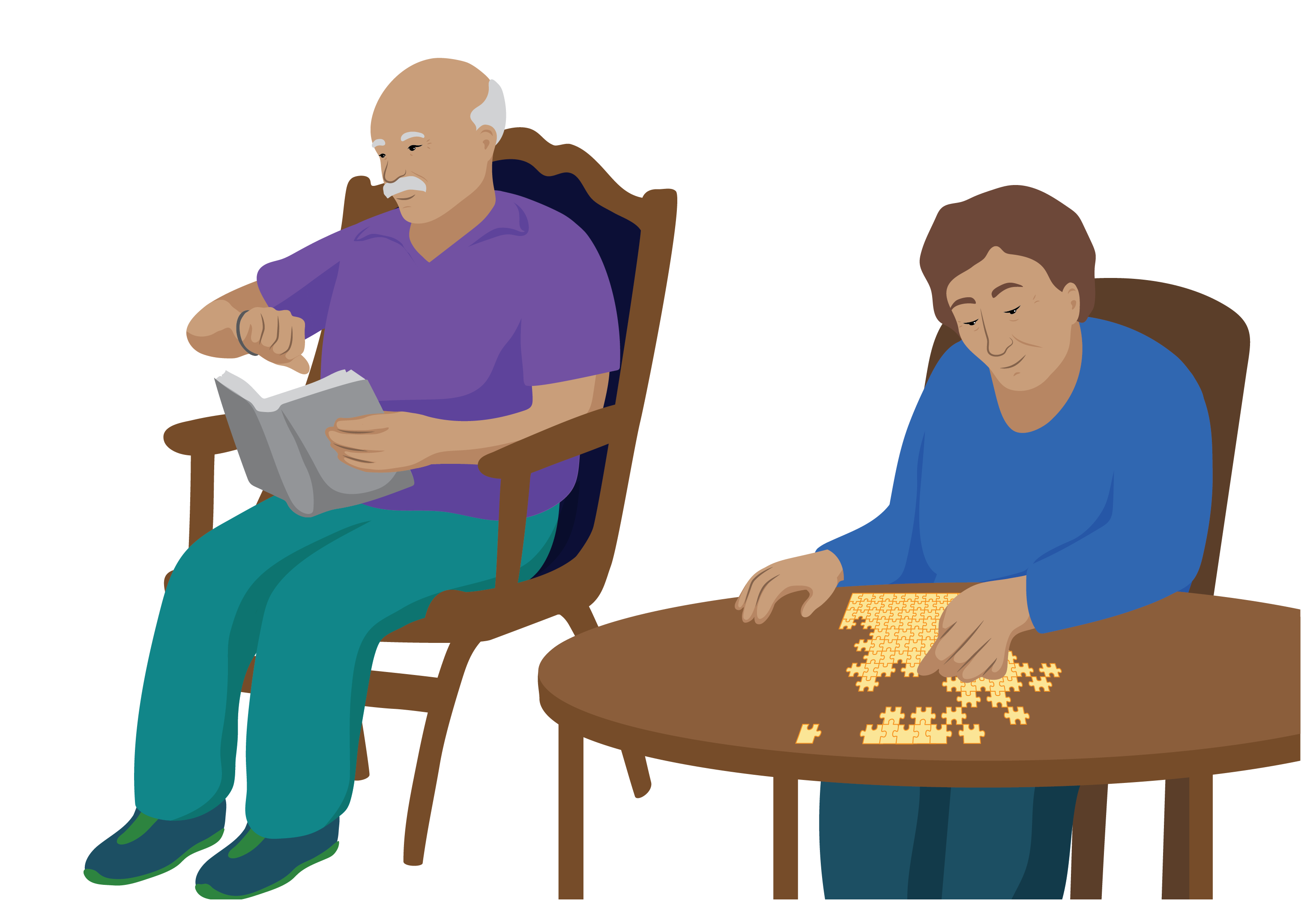
Meet Luciana
Luciana lives with her husband Jose. Luciana has difficulty remembering and planning activities. She does not recognise the body signals that tell her it is time to go to the toilet and has frequent bowel and bladder accidents.
Which step/s does Luciana have difficulty with?
Luciana has difficulty with step one.
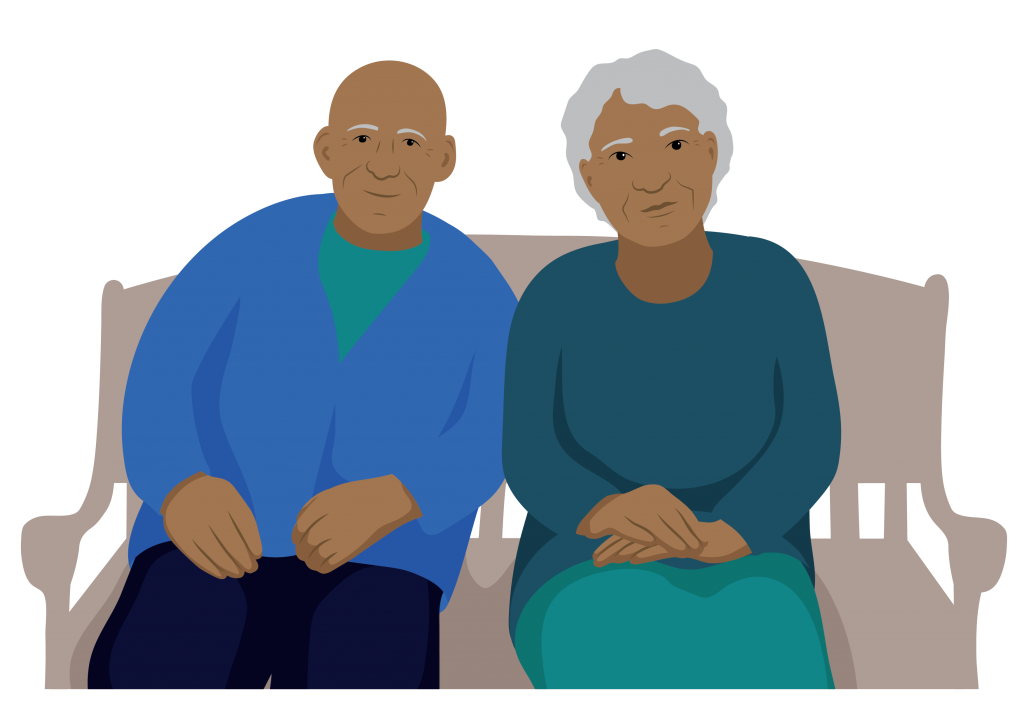
Remember David?
David is an older frail man who walks with a walking frame. David knows when he needs to go to the toilet, however he has difficulty holding on until he can get there. His physical difficulties also make it harder as it takes longer for him to walk to the toilet. He has had a few bladder accidents and is now nervous about going out.
Which step/s does David have difficulty with?
David has difficulty with step two.
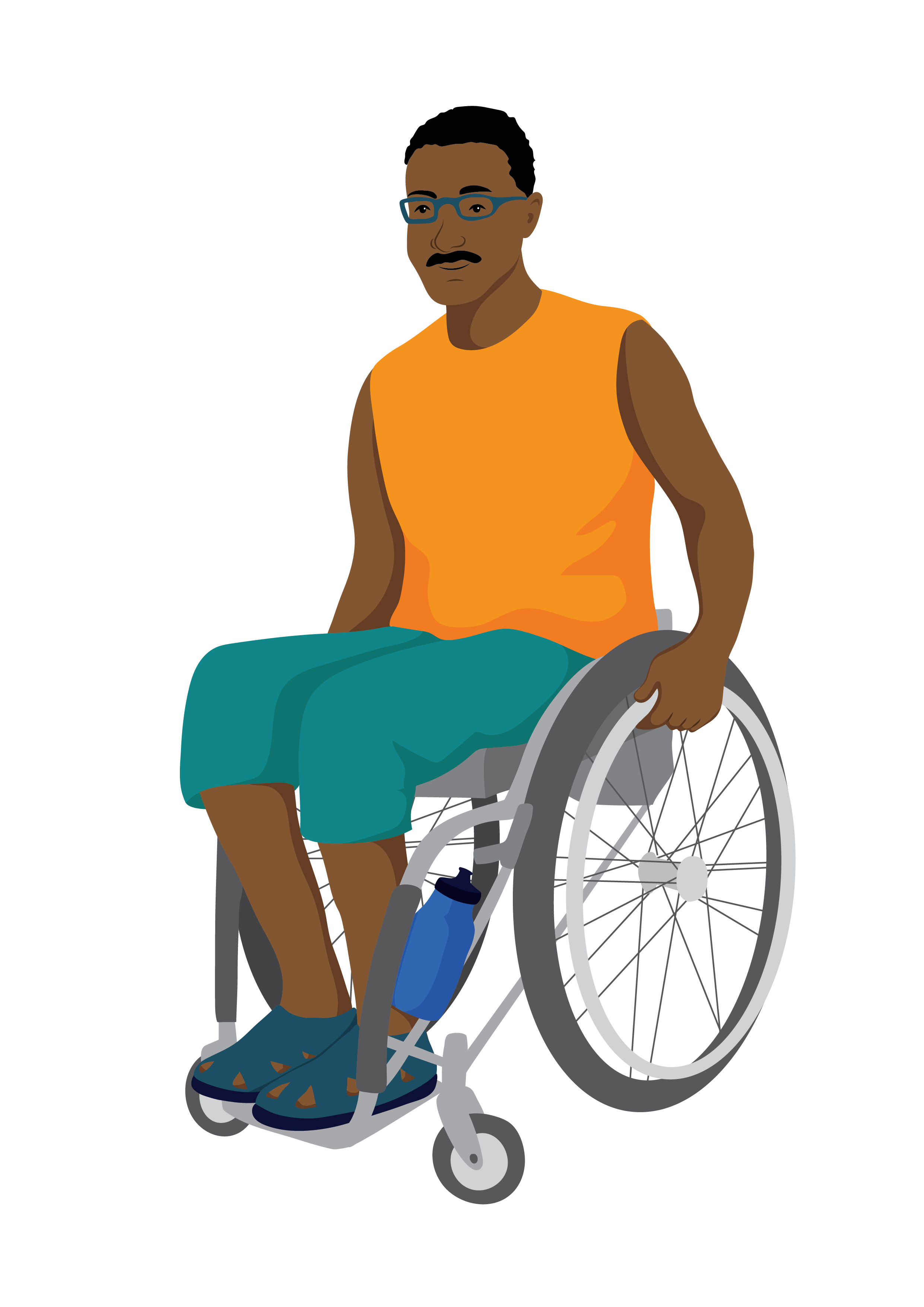
Remember Peter?
Peter has a spinal cord injury. He cannot feel or move his legs below his waist. He also cannot control his bladder and bowel.
Which step/s does Peter have difficulty with?
Peter has difficulty with steps one, two and three. His spinal cord injury means that he cannot feel the body signals or voluntarily control or empty his bladder or bowel.
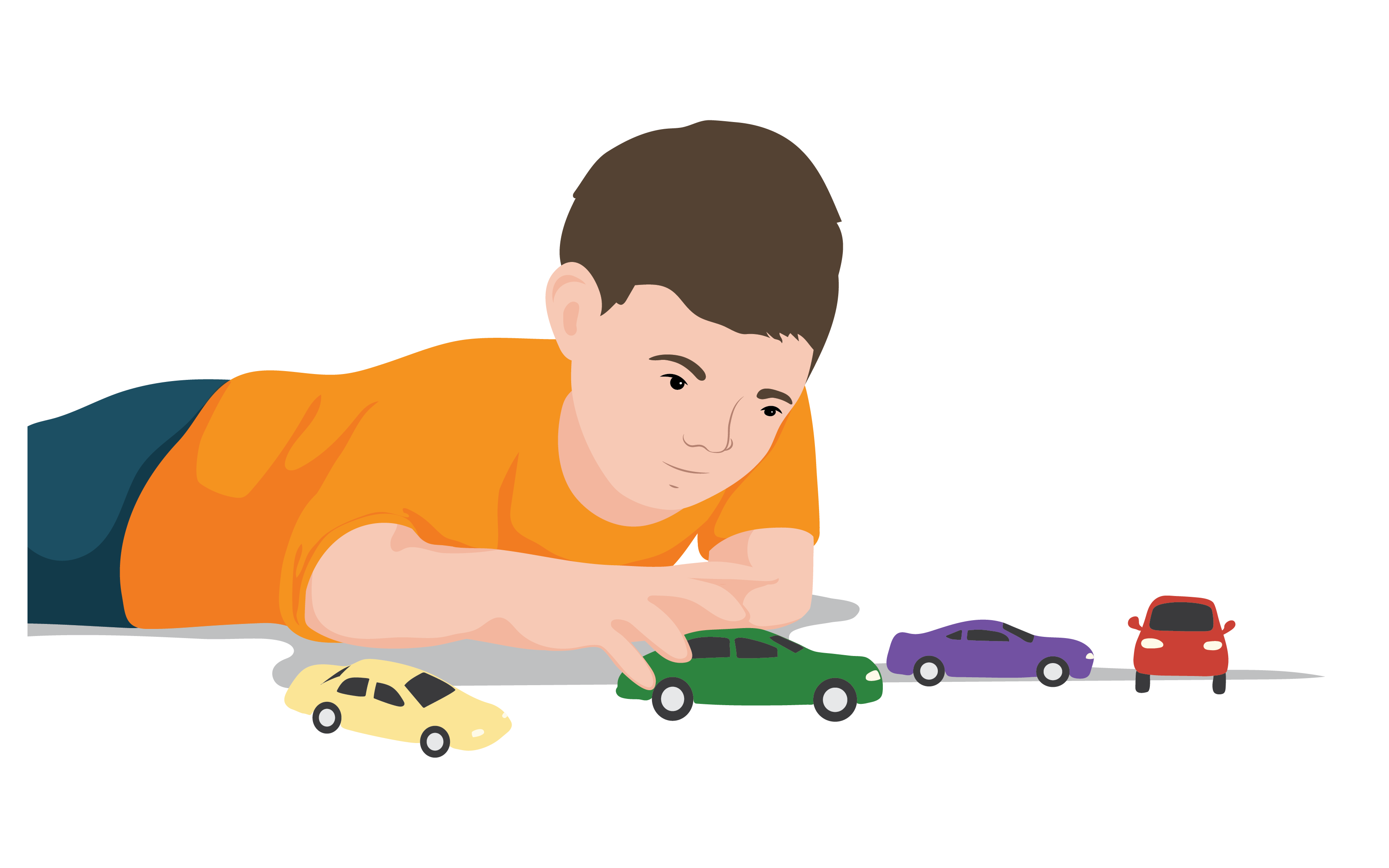
Meet Gabriel
Gabriel is seven years old and lives with his mother and brother. He plays with his toy cars for hours and doesn’t like to be interrupted. Gabriel has difficulty talking. When Gabriel needs to go to the toilet he gets restless and pulls on his clothing. His mother recognises these signs and knows he needs to go to the toilet. However she finds it difficult to get him to sit on the toilet long enough to empty his bowels. He quite often has bowel accidents.
Which step/s does Gabriel have difficulty with?
Although Gabriel recognises the body signals (step one) he has difficulty with step 3: being in the right place at the right time and ready to empty his bowels.
People experience incontinence in different ways.
Question
Read about the experience of incontinence for Marina, Sakura and Dembe below. Then answer the questions.

Meet Marina
Marina is 52 years old. Since her second child was born 25 years ago, she has had occasional leaks of urine when coughing or exercising.
In the last six months Marina has noticed she has to rush to get to the toilet in time. She is regularly experiencing some leaks of urine because she cannot hold on.
Marina wakes in the night to go to the toilet and does not always manage to hold on until she gets there.
1. What type of leaks does Marina experience?
Urine only is correct.
2. How often do leaks occur?
Regularly is correct. Marina experiences leaks regularly when she cannot get to the toilet in time. She also experiences leaks when she coughs or exercises.
3. When do the leaks happen?
Both is the correct answer. Marina experiences leaks of urine in the day and night.
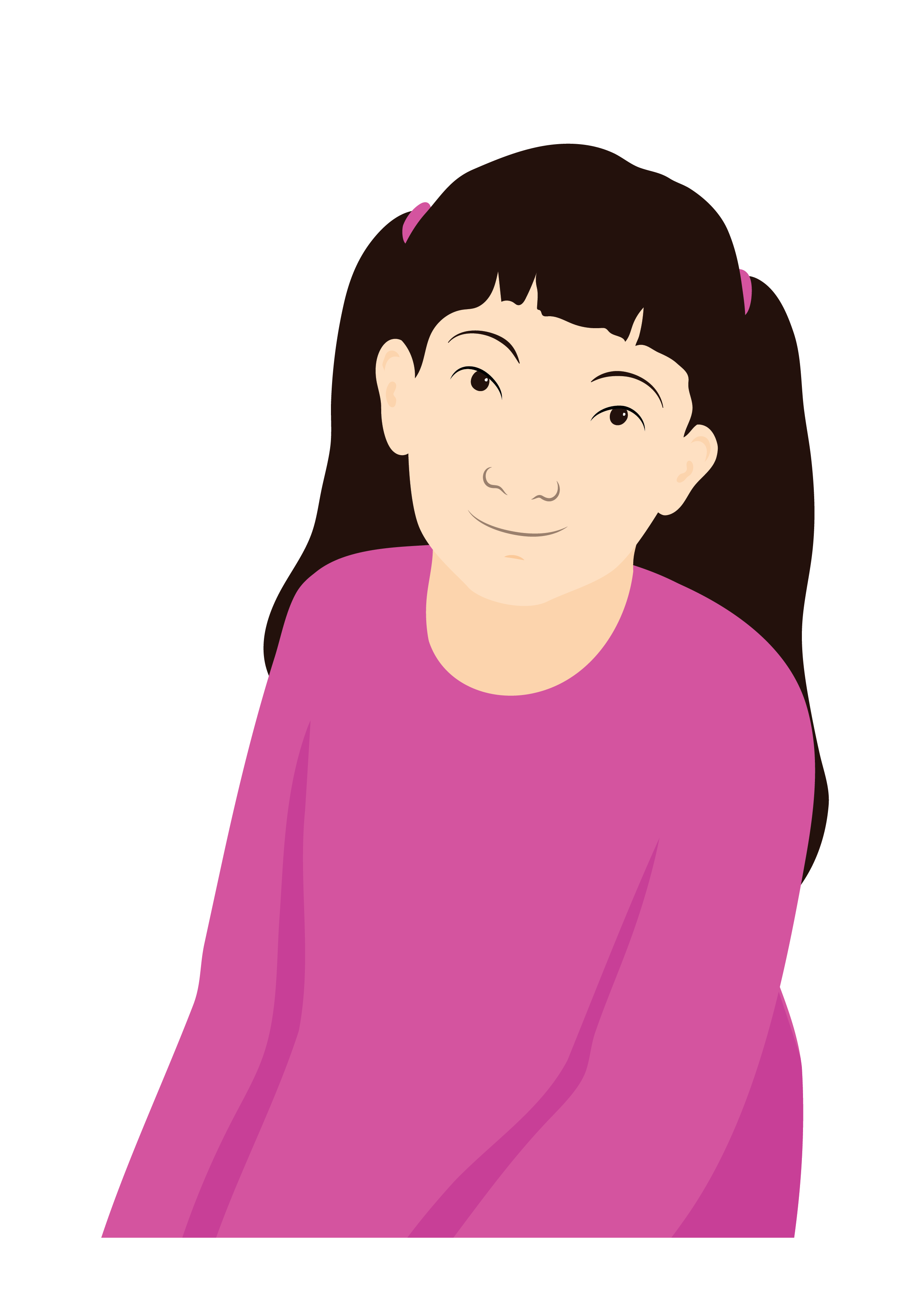
Meet Sakura
Sakura is 11 years old and lives with her family. Sakura has cerebral palsy, and has difficulty controlling her movements and communicating. Sakura often has leaks of urine and occasionally has leaks of faeces after breakfast.
1. What type of leaks does Sakura experience?
Both is the correct answer.
2. How often do leaks occur?
Occasionally and regularly are both correct. Sakura experiences leaks of urine regularly and leaks of faeces occasionally.
3. When do the leaks happen?
Day only or Both can be correct. Sakura may have leaks of urine at night. Sakura has leaks of faeces in the day. Asking more questions would help to be clear.
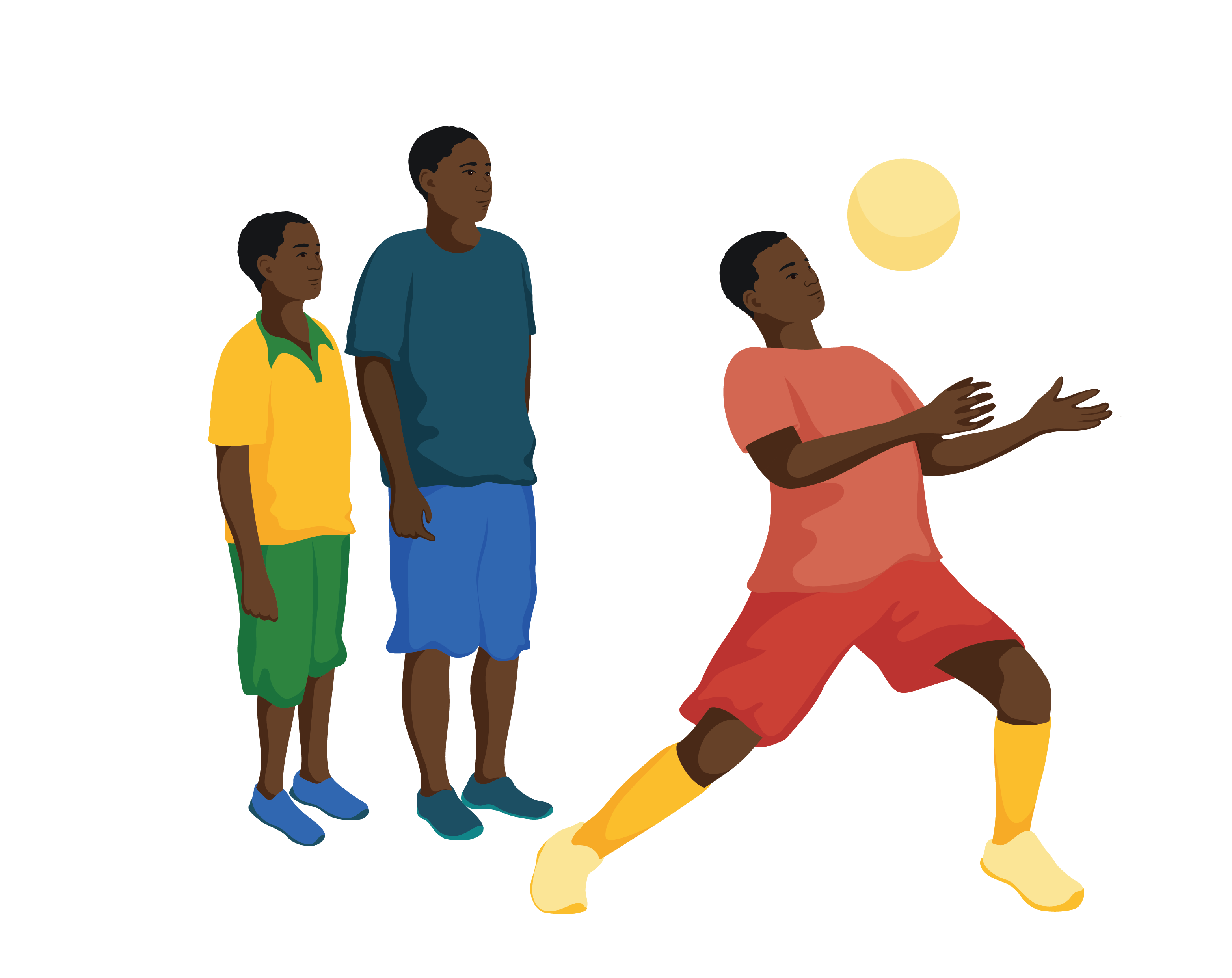
Meet Dembe
Dembe is 13 years old and loves playing football with his friends. His team are in the final for the local league, but it is a long journey to play the match and they will need to stay overnight. Dembe is very sad because he has decided not to play. He does not want his friends to know that he has never slept anywhere apart from his own home because he occasionally wets the bed and never knows when it will happen.
1. What type of leaks does Dembe experience?
Urine only is correct.
2. How often do leaks occur?
Occasionally is correct. Dembe experiences leaks occasionally each week.
3. When do the leaks happen?
Night only is correct.
Any person who has incontinence needs to see a health professional who can assess the cause and help plan how to treat and/or manage the incontinence.
There are many ways a health professional can help people of all ages regain control of their bladder or bowel. A referral is always a good idea.
Reflection
Which health care professional in your local area would you refer a person with incontinence to?
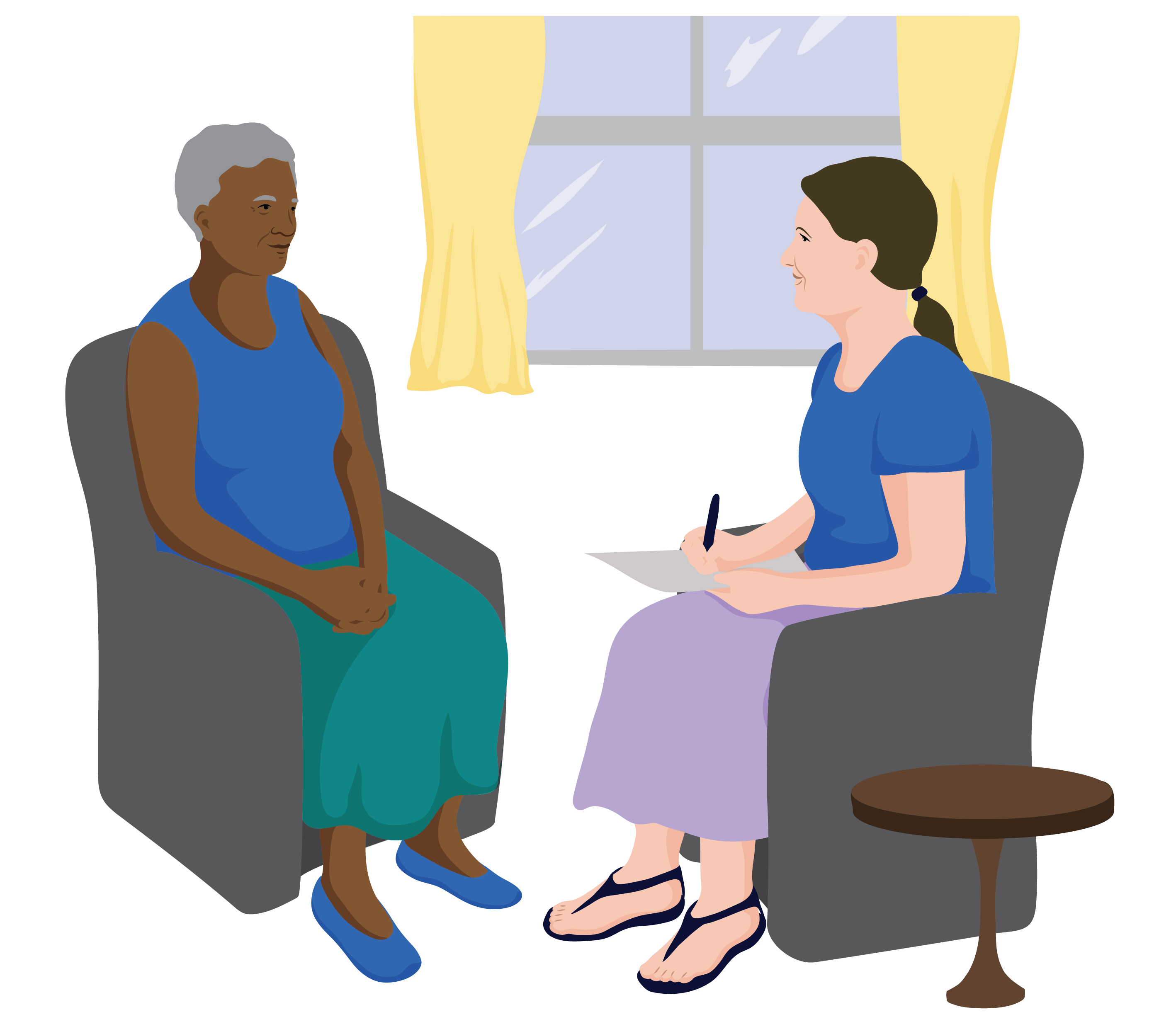
Marina is anxious about leaks. She worries that she will not get to the toilet in time when she goes out and has stopped going to her exercise class. She has been referred for a continence assessment.
The healthcare professional reassures Marina that women often have this problem but it can be treated and cured.
They will teach her to strengthen the muscles that support her bladder and retrain her bladder to avoid the need to rush to the toilet.
They agree some absorbent products would be useful temporarily, until the advice and treatment take effect so that she can go out without fear of leaks.
Marina is very happy.
Question
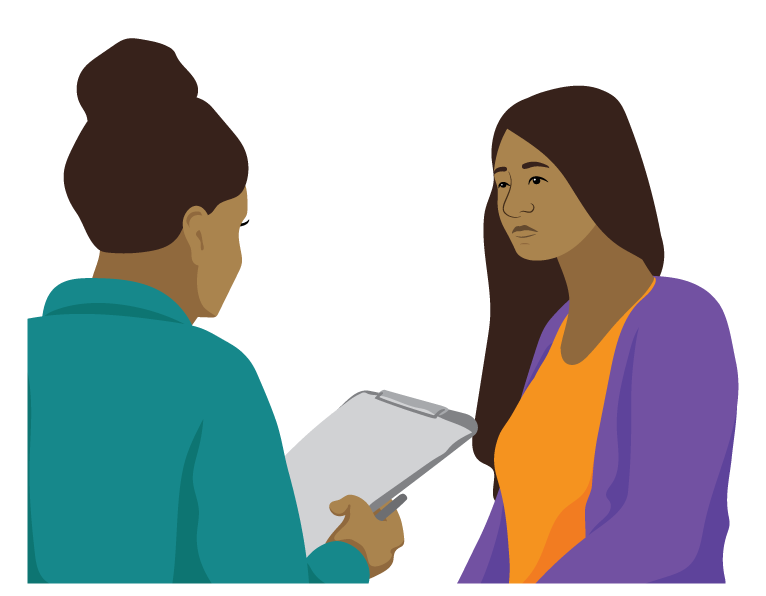
Meet Lola
Lola is 30 years old and is having problems going to the toilet. She cannot feel when she needs to go. She has started releasing her bladder and bowels accidentally. These problems began one week ago. Before then she did not have any difficulty and was in good health.
What action should you take?
With Lola’s permission, refer her immediately to a healthcare professional for a full assessment. She may have an underlying health problem.
Referral to a health professional is urgent for any person who has had a sudden change in their ability to control the release or emptying of their bladder or bowels.
Read on to find out different ways that people can get help to manage their self care activities.

